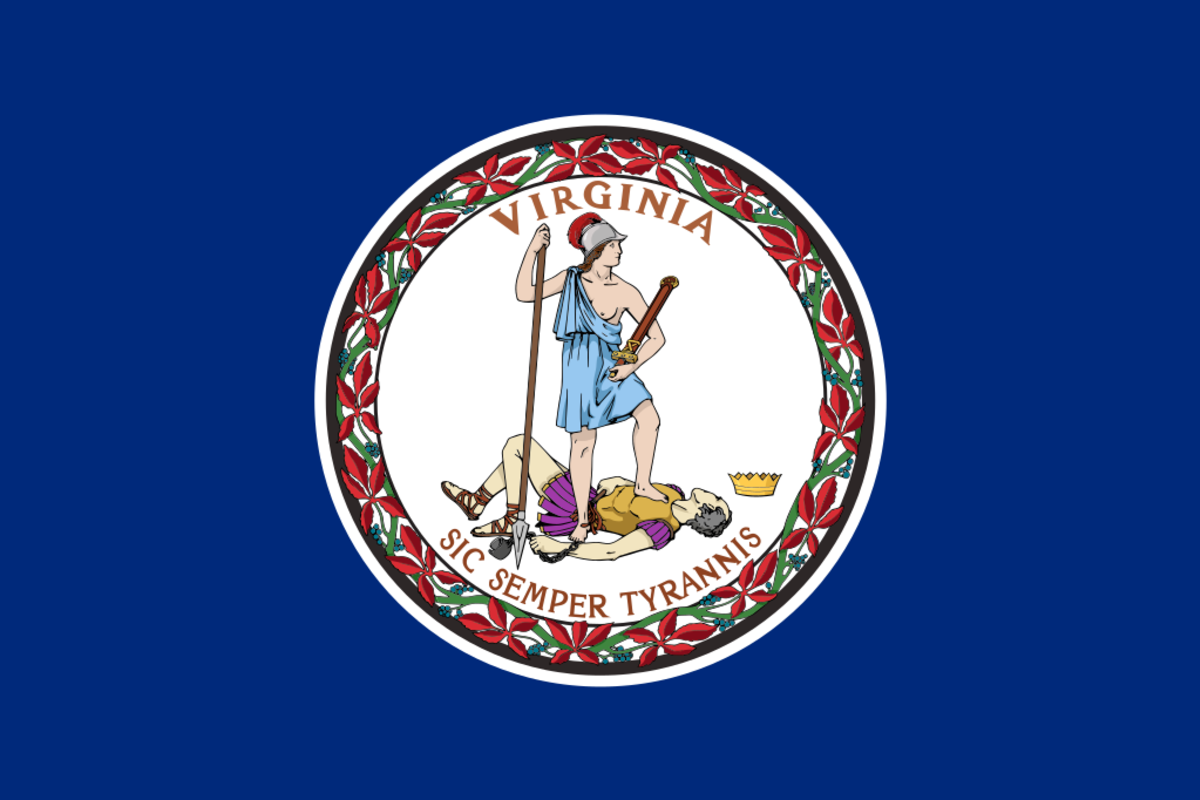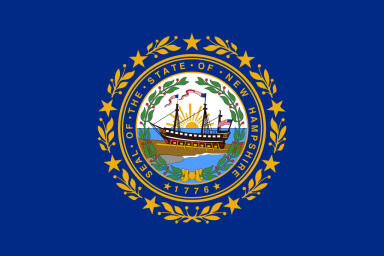Virginia Workers’ Compensation Laws

According to the results from the Census of Fatal Occupational Injuries, in 2021, there were a total of 5,190 fatal work injuries reported in Virginia. This shows a 9% increase from a 4,764 work injury record in 2020. Most workplace accidents in the state involve transportation incidents. These include motorized land vehicles, which account for 10 out of 15 fatal transportation accidents in the state.
Based on the 2019–2020 report of the U.S. Bureau of Labor Statistics, other common workplace accidents include exposure to dangerous substances or environments, intentional injury by another person, falling objects, electrocutions, and heavy machinery accidents. Workers who have been involved in an accident usually suffer from neck and back injuries, headaches, carpal tunnel syndrome, tendonitis, bursitis, and rotator cuff tears.
To address this rising number of workplace injuries, Virginia operates a State Plan Occupational Safety and Health Program. The Virginia Department of Labor and Industry is responsible for running the program. It aims to provide a safe working environment by conducting random inspections for high-hazard industries, including construction, maritime, and agricultural sectors.
Aside from enforcing safety and health programs, Virginia also requires companies and businesses to provide workers’ compensation insurance because, even if the state enforces safety and health programs, accidents in the workplace may still happen. Through workers’ compensation insurance, employees and their employers will be protected from out-of-pocket expenses in the event they get ill or injured.
This article discusses the workers’ compensation claiming process, which aims to help Virginians who suffered a mishap or injury at the workplace get back on their feet.
Virginia Workers’ Compensation Insurance Requirements
In Virginia, all employers need to provide workers’ compensation insurance to protect their employees in case they get caught up in or injured in an accident. It is a win-win situation for both parties because workers’ compensation insurance provides an exclusive remedy and protects employers from civil lawsuits they might face while also protecting workers from out-of-pocket expenses.
Businesses or companies in Virginia need to acquire workers’ compensation insurance if they employ more than two people. These workers can be either part-time or full-time employees, seasonal and temporary workers, immigrants, trainees, or working family members. Employers that hire subcontractors also need to include them in the number of employees if they are performing the same jobs or trade. However, in the state, a sole proprietor who does not have employees may choose not to obtain workers’ compensation insurance. Sole proprietors can purchase it voluntarily.
Meanwhile, businesses that use trucks need to provide workers’ compensation insurance to their drivers. According to the American Trucking Association, between 25,000 and 50,000 individuals work as truck drivers in Virginia. Therefore, companies need to obtain protection plans for their truck drivers because they are more prone to accidents. If employers do not carry workers’ compensation, injured truck drivers can file a claim with the Virginia Workers’ Compensation Commission’s Uninsured Employer’s Fund. However, if drivers work as independent contractors, they might not be eligible for workers’ compensation benefits.
For out-of-state accidents, employees can still pursue workers’ compensation benefits if their contract of employment was made in the state and the place of business is within the borders of Virginia.
Employers may acquire workers’ compensation insurance through professional employer or group self-insurance organizations, authorized self-insurers, and commercial insurance carriers. They need to work with carriers because Virginia does not allot state funds for this kind of coverage.
In Virginia, employers that fail to provide workers’ compensation insurance might face serious penalties. They may pay fines of up to $250 for each day uninsured and a maximum penalty of $50,000. If they continue their operation without having insurance for their workers, the state may order them to stop their operation. Moreover, they can be subjected to criminal prosecution.
Virginia Workers’ Compensation Benefits
Workers’ compensation insurance in Virginia aims to protect employees from out-of-pocket expenses in case they get involved in an accident resulting in severe injuries and illnesses. This type of insurance provides the coverage for lost income, medical, death, and permanent partial and total disability benefits.
How to File a Workers’ Compensation Claim in Virginia
Both employers and employees in Virginia have major responsibilities in processing workers’ compensation insurance claims. They need to work with each other and reach an agreement to make the claim process easier. The following sections will help companies and workers navigate the complexities of the workers’ compensation insurance claim filing process.
When Is the Deadline for Workers’ Compensation Claims in Virginia?
According to Virginia’s Workers’ Compensation Act, employees who have sustained injuries or illnesses in their workplaces have a fixed time period to file a claim. This time frame depends on where they will report the case.
Employees need to inform their employers about their injuries or illnesses within 30 days. The 30-day period will allow employers to investigate the case further and assess the claim. Victims can opt not to wait for the 30-day period to run out and report the incident immediately. Through this, employers will have no excuse to deny their claims.
Moreover, they need to report and file a claim with VWC. They have two years to file a workers’ compensation claim, starting on the date of the accident. If employees suffer from occupational diseases, they must file a claim within two years from the date they were told about their condition or within five years of the date they were last exposed.
Step-By-Step Guide on Filing a Workers’ Compensation Claim in Virginia
The process does not stop after determining the specifics of workers’ compensation insurance laws. Employers who have been hurt or injured need to file a claim to advocate and fight for their rights. They need to deal with this detailed process in order to achieve justice by receiving maximum compensation.
Victims may or may not work with an attorney. However, working with a legal professional may help them navigate the law and address issues that may arise along the process.
The following steps may guide ill or injured employees and their family members in filing workers’ compensation claims:
1. Report to the employer.
As stated previously, workers who have been injured or ill must report their conditions to their employers within 30 days. They need to provide detailed statements on what happened and how they sustained the injuries. Victims must use the Commission’s claim form. If they fail to report the case within the time period, they might not receive workers’ compensation benefits.
2. File a First Report of Injury.
Telling the employers is not enough to receive compensation. Victims should file a First Report of Injury if injuries were sustained on or before October 1, 2008. If the accident happened before October 1, 2008, and injuries were not reported to the Commission, employers should use the FROI form to get a Jurisdiction Claim Number.
3. Ask the employer for three sets of information.
Employees need to ask their employers to provide them with (1) a written work incident report and (2) a list of physicians they can consult with. They should also ask about (3) the contact information of their claims adjuster.
4. Seek medical treatment.
It is important for employees to get themselves checked in order to have medical evidence that can support their benefit claims. Whether it is a minor or major injury, employees need advice from medical professionals. They can consult with a doctor from the panel of physicians provided. However, if their employers refuse to provide them with a doctor, they can choose their preferred physician.
5. Wait for the claim decision.
After filing a claim, employees need to wait for the claim decision. Once VWC processes the claim, the claim administrator will have to complete and return the Order Response Form to the Commission within 30 days. An award agreement will be sent to the plaintiffs once the claim administrator accepts the claim. This agreement must be signed by all parties. After the agreement has been signed, the Commission will enter an Award Order. The Award Order protects the rights of employees who have been hurt.
6. Schedule hearings, if necessary.
If the employee’s claim is denied by the claim administrator, a hearing will be scheduled by the Commission. A Notice of Hearing will be given to both parties. Plaintiffs must keep in mind that their claims may be denied even if they provide supporting documents, such as medical records. During hearings, a deputy commissioner will hear the evidence provided by both parties — injured workers and employers or insurance carriers.
7. Wait for the decision.
After the hearing, a Judicial Opinion will be mailed to both parties. This written decision is given to employees and employers after the case is heard.
8. File an appeal.
If the parties do not agree with the Commission’s decision, they may file an appeal to VWC. They have 30 days from the date the Judicial Opinion has been issued to file an appeal. Either party can also file an appeal to the Virginia Court of Appeals or the Supreme Court of Virginia.
To avoid claim denials, employees need to make sure that their documents have the necessary information. They must include the following information:
Their names and addresses.
Accident date.
Employer’s name and address.
Body part(s) injured.
Available benefits (could be death, lifetime medical, temporary total or partial disability, or medical bill benefits).
Gross weekly earnings.
Doctor disability letters.
Photographs of the injury or accident scene.
Victims can file for workers’ compensation in three different ways:
In person. Victims need to fill out the Claim for Benefits Form and give it to any Workers Compensation Commission offices in Virginia. They need to present an identification card upon entering the Commission’s offices.
By mail. Employees can file a workers’ compensation claim by sending the mail to the Commission’s headquarters at 333 E Franklin St., Richmond.
Online. This is the fastest way to submit a workers’ compensation claim. Employees may use the Workers’ Compensation’s electronic filing system. They must create a WebFile account using their personal identification and jurisdictional claim numbers.
What Should One Do If a Workers’ Compensation Claim in Virginia Has Been Denied?
As stated previously, employees who have been denied workers’ compensation claims in the state must file an appeal to VWC. They can also file a request for reconsideration to re-evaluate their case if the Commission still denies their claim or request a review by the full Commission. During these appeals, plaintiffs can consult a workers’ compensation attorney to help them create strategies and analyze their claims.
Employees also need to understand why the Commission or employers sometimes deny claims. Some of the reasons are:
The employee did not inform their employers or supervisors immediately.
The employee did not seek medical care as soon as possible.
The workers’ compensation claim was filed after the statute of limitations.
There is no witness to the accident that resulted in severe injuries or illnesses.
The worker refused to receive treatment from the authorized physician or medical service provider.
The worker filed a claim after their company gave them a disciplinary warning.
The employee was injured during the first day of work.
The employee was under the influence of alcohol and drugs.
The employee has pre-existing medical conditions.
Legal Resources for Injured Workers in Virginia
After understanding the step-by-step guide to filing a claim and the detailed process of workers’ compensation insurance in Virginia, employees involved in an accident may still need other legal resources to help them advocate for their rights as individuals.
Through this section, victims can get an idea of where they can find legal assistance in the state of Virginia.
VALegalAid.org
VALegalAid.org is maintained and operated by the Virginia Poverty Law Center. Its legal aid partners aim to provide complete, accurate, and up-to-date information regarding poverty law issues in the state. The website provides legal information given by pro bono attorneys, legal aid lawyers, advocates, and clients. Its LawHelp website platform helps Virginians address life-changing legal issues. It also educates people on how the civil justice sector works to resolve injustices in Virginia.
U.S. Department of Veteran Affairs
The U.S. Department of Veteran Affairs Health Administration Division oversees the National Workers’ Compensation Program for compensation coordinators and facility workers’ compensation staff in Virginia. The program aims to make sure that employees suffering from work-related illnesses and injuries will receive their benefits. Program members see to it that employees are entitled under the Federal Employees’ Compensation Act. They also make sure that employees continue to work as long as they are capable of going back to their pre-injury workload.
Social Security Administration
The Social Security Administration provides benefits to employees who have sustained illnesses or injuries in their workplace. The administration allows employees to obtain disability benefits if they have a substantial work history. It provides disability benefits to Virginians with long-term impairments. Employees should not be capable of returning to their previous work or doing any other tasks in order to become eligible for disability benefits.
Virginia Department of Health
The Virginia Department of Health was recognized and accredited by the Public Health Accreditation Board in May 2023. The organization aims to protect residents in Virginia and promote healthy lifestyles. Its central office and 35 local health districts work together to educate the public about threats and track diseases in the state.
U.S. Department of Labor Occupational Safety and Health Administration
The U.S. Department of Labor OSHA provides a plan for private and public sector workplaces in Virginia. Its Virginia Occupational Safety and Health Program has adopted the majority of OSHA standards. It takes on matters involving sanitation, medical services and first aid, steel erection, and field sanitation. Moreover, the VOSH investigates state, local, and private government retaliation cases.
Virginia Bar Association
Established in 1888, the Virginia Bar Association aims to raise professional standards and improve the law in the state. Each year, the association supports numerous charitable and educational organizations. These include the Wills for Heroes Projects, Chief Justice’s Pro Bono Summit, LPMD Education Programs, Lawyer Wellness Challenge, and YLD Law School Liaison Recruiting Roundtable. The VBA Foundation is registered as a charitable agency with the Office of Charitable and Regulatory Programs in the Virginia Department of Agriculture and Consumer Services.
Expertise.com StaffAuthor
Step into the world of Expertise.com, your go-to hub for credible insights. We don't take accuracy lightly around here. Our squad of expert reviewers, each a maestro in their field, has given the green light to every single article you'll find. From rigorous fact-checking to meticulous evaluations of service providers, we've got it all covered. So feel free to dive in and explore. The information you'll uncover has been stamped with the seal of approval by our top-notch experts.




